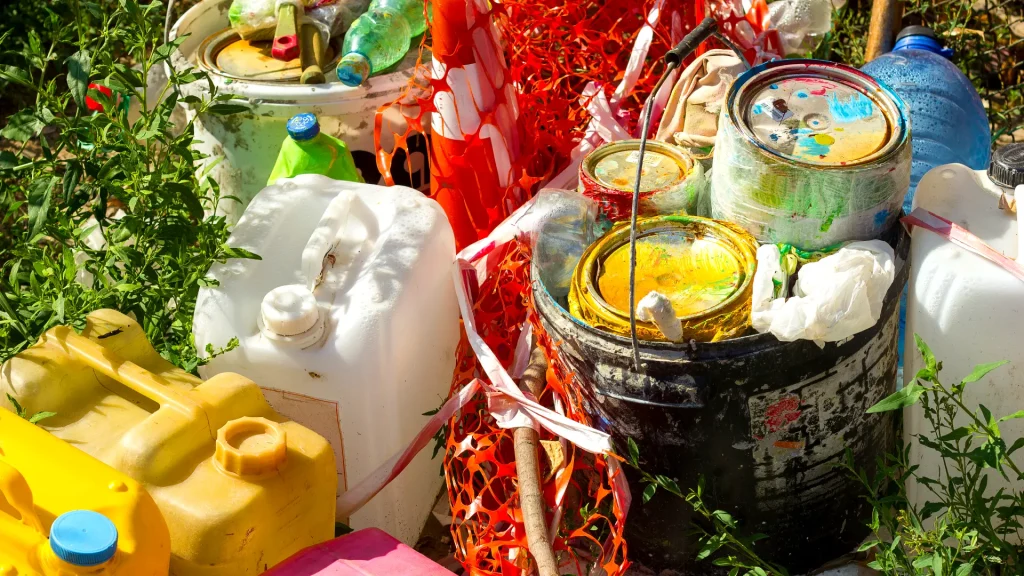Moving house is a significant life event, often filled with excitement, stress, and a myriad of logistical challenges. Among these challenges is the task of deciding what can and cannot be transported by a removal company. While these companies offer a comprehensive service designed to make moving easier, there are certain items they are typically unable or unwilling to move. Understanding these restrictions can help you plan more effectively and ensure a smooth transition to your new home.
Prohibited Items: Safety First
Hazardous Materials
Safety regulations strictly prohibit the transportation of hazardous materials by removals companies. These items pose a significant risk during transit due to their flammable, explosive, or toxic nature. Common household items that fall into this category include:
- Paints and Solvents: These are flammable and can emit dangerous fumes.
- Pesticides and Fertilisers: Toxic chemicals that can be harmful if spilled or leaked.
- Propane Tanks and Gas Cylinders: Highly flammable and pose an explosion risk.
- Fireworks: Obviously hazardous due to their explosive nature.
- Ammunition and Firearms: Strictly regulated and pose a serious risk if mishandled.
Perishable Goods
While not inherently dangerous, perishable goods are typically not transported by removals companies due to the risk of spoilage and contamination. This includes:
- Fresh Foods: Fruits, vegetables, dairy products, and meats.
- Frozen Foods: Risk of thawing and spoiling if not kept at the correct temperature.
- Open Food Containers: Prone to spills and contamination.
If you are moving locally and the transit time is short, you might consider transporting these items yourself or arranging for them to be moved in a cooler.
Personal and Sensitive Items
Removals companies usually advise against moving certain personal and sensitive items due to the risk of loss or damage. These items include:
- Important Documents: Passports, birth certificates, financial records, and other vital documents should be kept with you.
- Jewellery and Valuables: High-value items such as jewellery, cash, and heirlooms should be transported personally to avoid any risk of loss.
- Sentimental Items: Items of high sentimental value, which are irreplaceable, are better transported personally.
Living Things: Plants and Pets
Plants
Transporting plants can be problematic for removals companies due to their fragility and the potential for soil to cause damage to other items. Additionally, long transit times can harm plants, especially if they are not properly cared for en route. Moreover, some plants might be subject to quarantine regulations, especially if you are moving long distances or across borders.
Pets
Pets present a unique challenge for house moves. Removals companies are generally not equipped to handle live animals, which require special care and conditions during transit. It’s advisable to transport pets yourself or use a specialised pet relocation service that can provide the necessary care and environment for your animals.
Heavy and Oversized Items
Pianos and Large Furniture
While most removals companies are equipped to handle large items, some may not be able to accommodate exceptionally heavy or oversized items such as grand pianos or large pieces of antique furniture. These items often require special equipment and expertise to move safely. It’s important to inform your removals company in advance if you have such items, as they might need to make special arrangements or recommend a specialist service.
Vehicles
Moving vehicles is beyond the scope of most standard removals companies. If you need to transport a car, motorbike, or other vehicle, you will likely need to arrange for a specialised vehicle transportation service.
Restricted and Illegal Items
Contraband and Illicit Goods
It goes without saying that removals companies will not transport any illegal items. This includes:
- Illegal Drugs: Any form of controlled substances or illegal drugs.
- Stolen Property: Any property that is suspected to be stolen.
- Illegal Weapons: Any form of weaponry that is prohibited by law.
Items Restricted by Law
Certain items may be legally restricted from being transported across state or national borders. This can include:
- Cultural Artefacts: Items of cultural or historical significance that are protected by law.
- Endangered Species Products: Items made from endangered species, such as ivory or certain furs.
Preparing for a Smooth Move
Communication is Key
The best way to ensure a smooth move is to communicate clearly with your removals company. Provide a detailed list of items you plan to move and discuss any potential issues or restrictions. This will allow the company to advise you appropriately and make any necessary arrangements.
Plan Ahead
Knowing what items cannot be moved by a removals company allows you to make alternative arrangements well in advance. This could mean finding a specialised service for certain items, making plans to transport some items yourself, or disposing of items that cannot be moved.
Insurance and Valuation
Ensure that you have adequate insurance coverage for your belongings during the move. This is especially important for high-value items and those that the removals company is unable to transport. Check with your insurance provider to understand what is covered and consider purchasing additional coverage if necessary.
Conclusion
Understanding the limitations of what can be transported by a removals company is essential for a successful house move. By identifying items that are hazardous, perishable, personal, oversized, or legally restricted, you can plan accordingly and avoid any last-minute surprises. Clear communication with your removals company and thorough preparation will go a long way in ensuring your move is as smooth and stress-free as possible.








